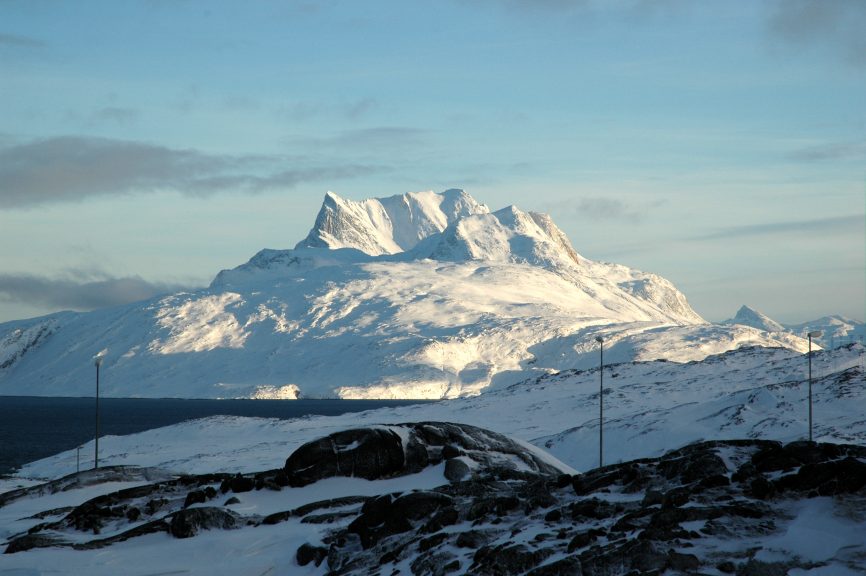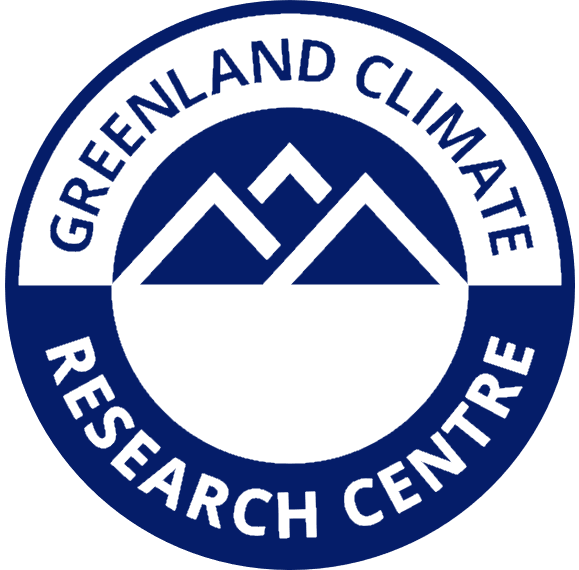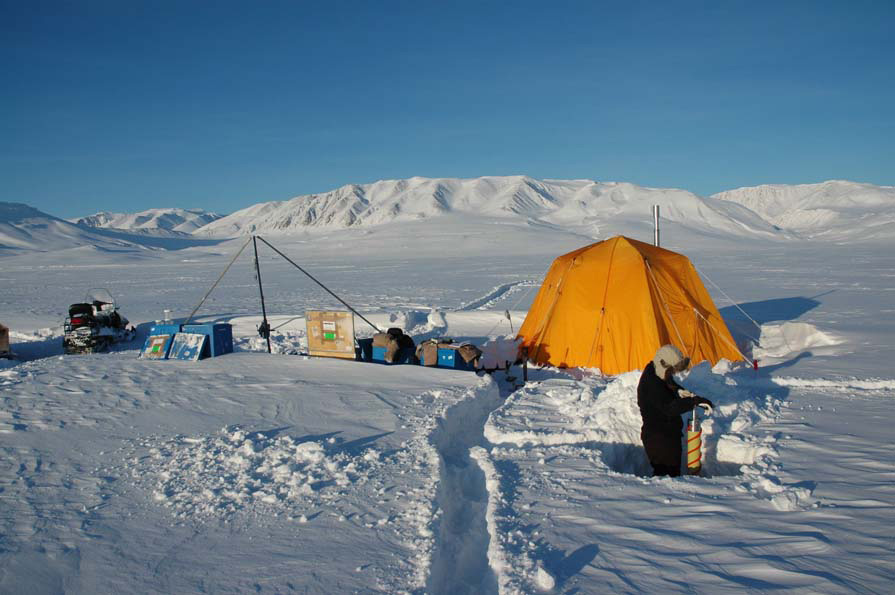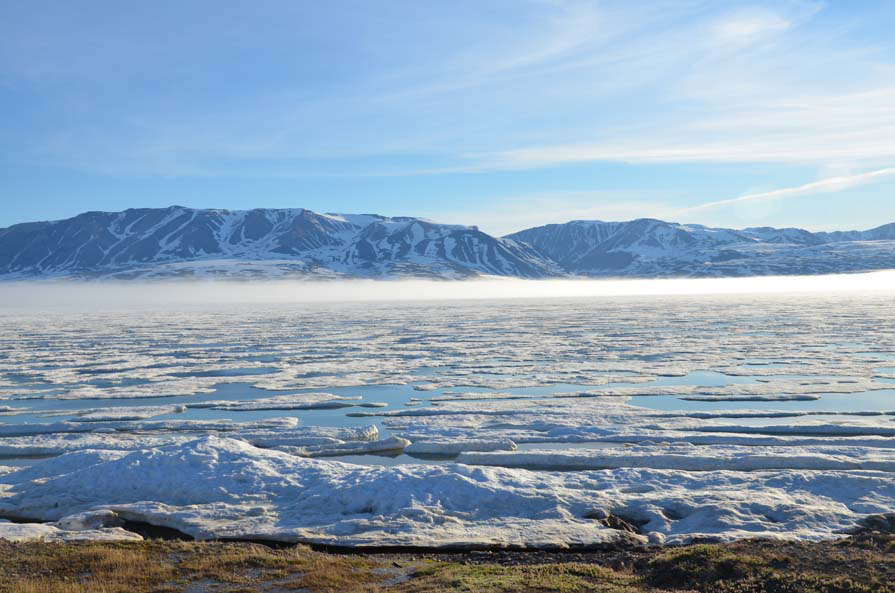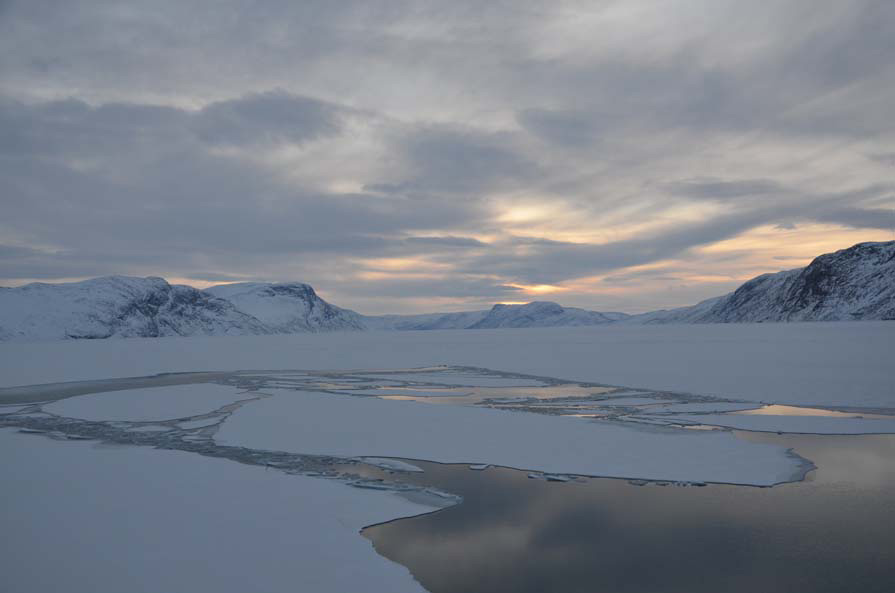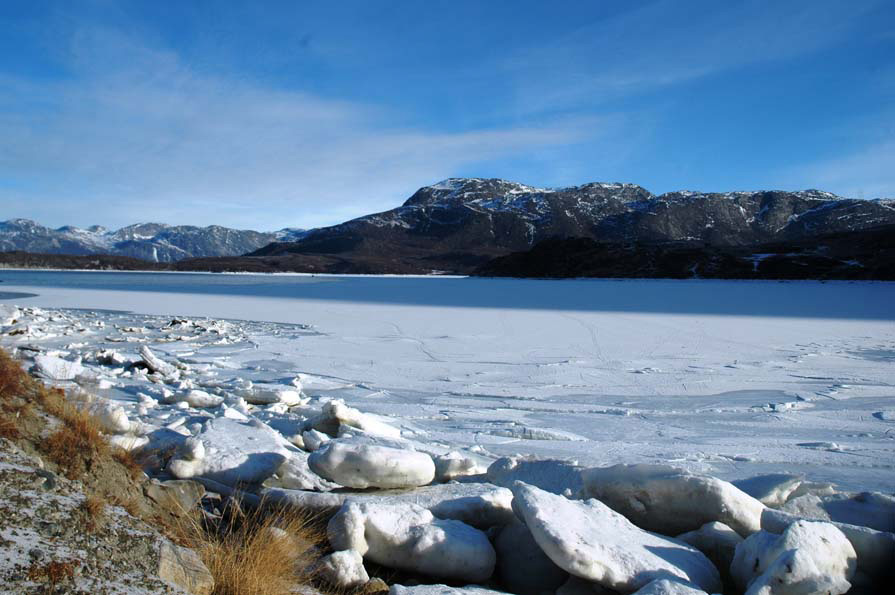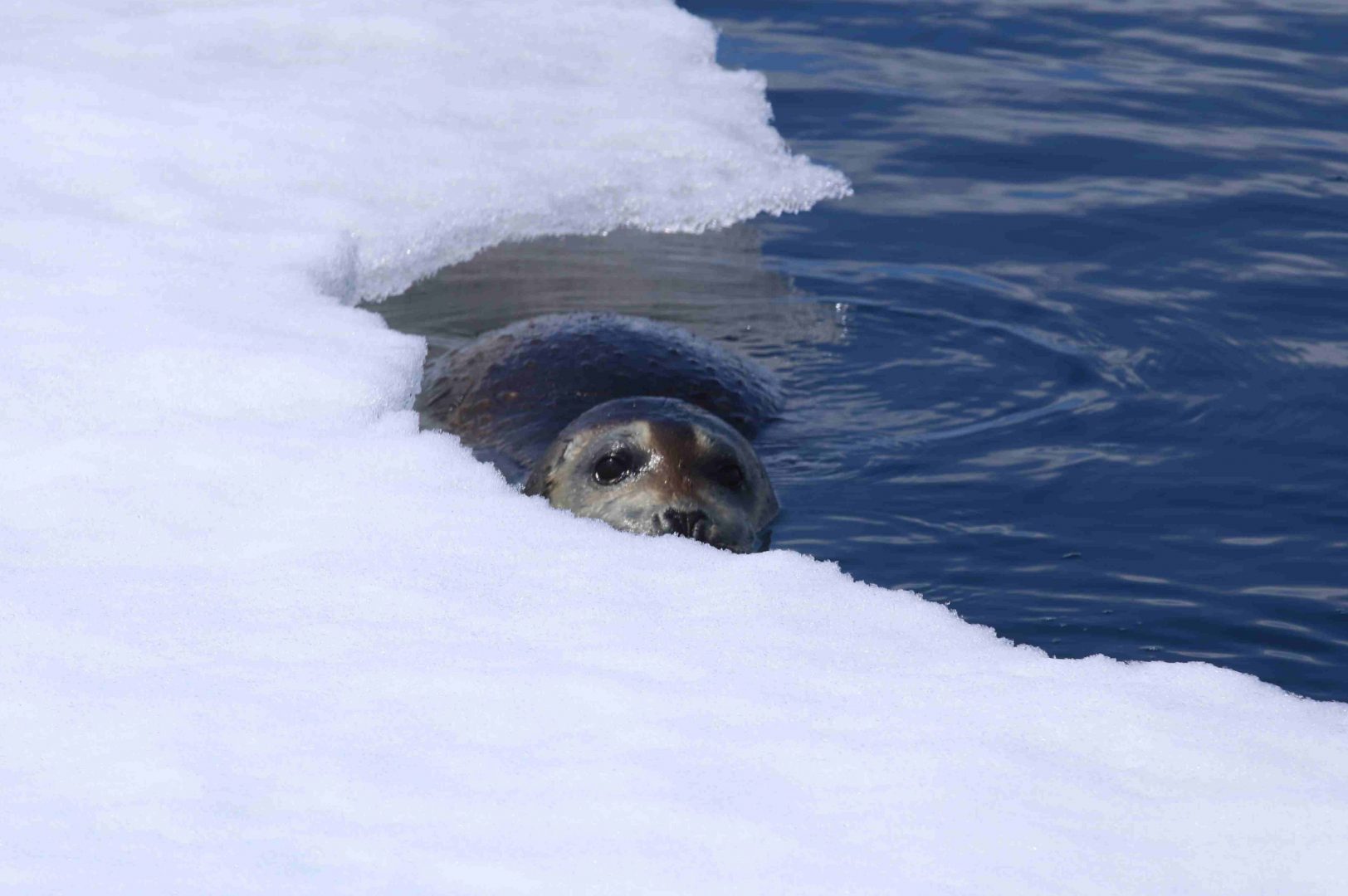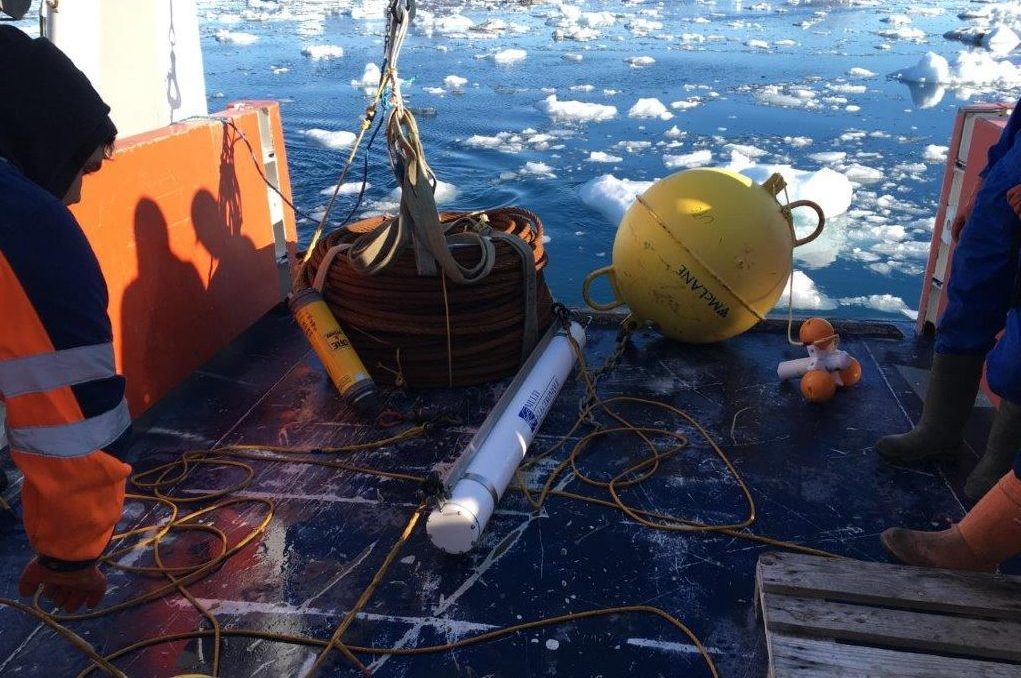About the program
Today’s changes in climate have significant implications for society, as diminished sea ice cover affects both the fisheries in Greenlandic waters and the catch of local hunters. Furthermore, pristine waters become accessible to anthropogenic activities, paving the way for new opportunities in shipping, tourism and oil and gas exploration.
We focus on the ecological aspects of how future changes in sea ice will propagate through the food chain—from small organisms at low levels to apex predators such as marine mammals. But we also aim to expand our knowledge of the sea ice and biogeochemical processes under the ice to predict the impact of climate change on the carbon sink in ice-covered Greenlandic fjord systems. We address the dynamics, the ecology and species dependency of Greenlandic sea ice in many ways, often blending biogeochemical approaches with local knowledge and conducting long-term monitoring of species composition and distribution.
